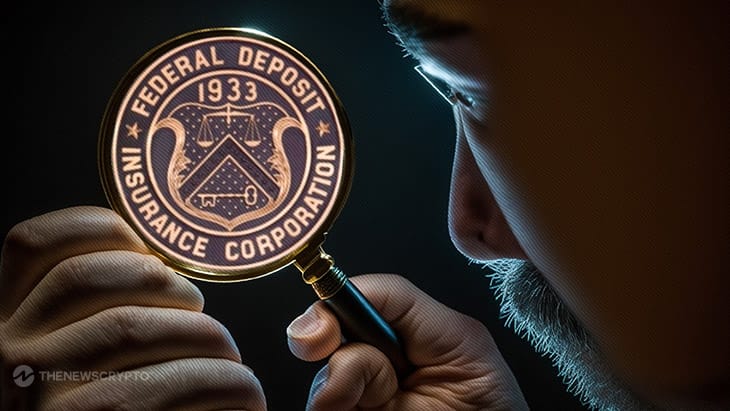FDIC’s Inspector General Office Calls for Crypto Risk Strategy Review
The post FDIC’s Inspector General Office Calls for Crypto Risk Strategy Review appeared on BitcoinEthereumNews.com. Bitcoin News Two suggestions were submitted to the FDIC by the Office of the Inspector General. Companies dealing in crypto are criticized for “misrepresentations” in the report. The FDIC’s Office of the Inspector General published an evaluation on the FDIC’s crypto risk strategy. Two suggestions were submitted to the FDIC by the Office of the Inspector General, one of which was a method for monitoring crypto activity at regulated institutions. A news release states that the OIG issued the suggestions “based on evidence obtained during [their] evaluation.” One section of the report said that the FDIC’s murky processes leave monitored institutions unsure of what to do. Addressing Crypto Related Risks Without “effective guidance,” the FDIC or its member institutions may not take enough steps to address the most serious risks presented by crypto assets, hence the OIG recommends that the FDIC conduct an evaluation of these risks. A section of the report read: “Specifically, the FDIC has not yet completed a risk assessment to determine whether the Agency can sufficiently address crypto asset-related risks through actions such as issuing guidance to supervised institutions.” The OIG also expressed concern that the absence of a review mechanism might give the impression that the regulatory body is not “supportive” of institutions who are or intend to interact with cryptocurrency. Also, the FDIC has said that it would take the necessary steps to address these suggestions by the end of January. Thus, suggesting that it agrees with the report’s conclusions. Moreover, companies dealing in cryptocurrency are criticized for “misrepresentations” in the report. An anonymous cryptocurrency firm was used as an example. A cryptocurrency company filed into bankruptcy in 2022. The company “had misled” its customers for almost a year. By making them believe that their funds were protected by the FDIC, according to the…

The post FDIC’s Inspector General Office Calls for Crypto Risk Strategy Review appeared on BitcoinEthereumNews.com.
Bitcoin News Two suggestions were submitted to the FDIC by the Office of the Inspector General. Companies dealing in crypto are criticized for “misrepresentations” in the report. The FDIC’s Office of the Inspector General published an evaluation on the FDIC’s crypto risk strategy. Two suggestions were submitted to the FDIC by the Office of the Inspector General, one of which was a method for monitoring crypto activity at regulated institutions. A news release states that the OIG issued the suggestions “based on evidence obtained during [their] evaluation.” One section of the report said that the FDIC’s murky processes leave monitored institutions unsure of what to do. Addressing Crypto Related Risks Without “effective guidance,” the FDIC or its member institutions may not take enough steps to address the most serious risks presented by crypto assets, hence the OIG recommends that the FDIC conduct an evaluation of these risks. A section of the report read: “Specifically, the FDIC has not yet completed a risk assessment to determine whether the Agency can sufficiently address crypto asset-related risks through actions such as issuing guidance to supervised institutions.” The OIG also expressed concern that the absence of a review mechanism might give the impression that the regulatory body is not “supportive” of institutions who are or intend to interact with cryptocurrency. Also, the FDIC has said that it would take the necessary steps to address these suggestions by the end of January. Thus, suggesting that it agrees with the report’s conclusions. Moreover, companies dealing in cryptocurrency are criticized for “misrepresentations” in the report. An anonymous cryptocurrency firm was used as an example. A cryptocurrency company filed into bankruptcy in 2022. The company “had misled” its customers for almost a year. By making them believe that their funds were protected by the FDIC, according to the…
What's Your Reaction?









































